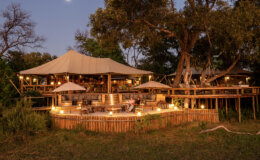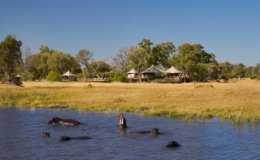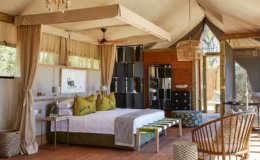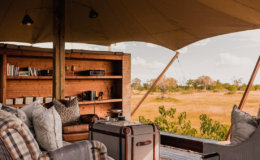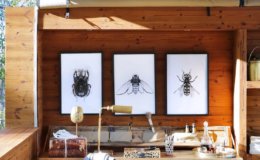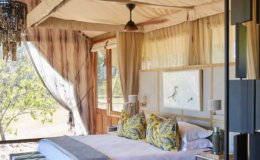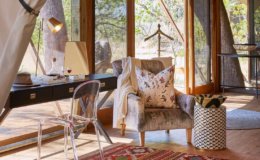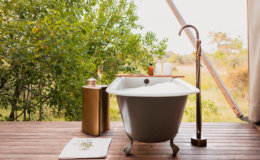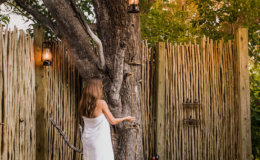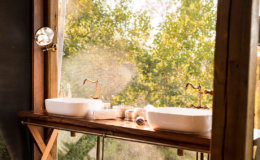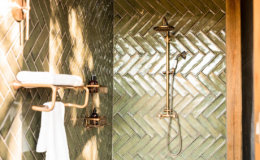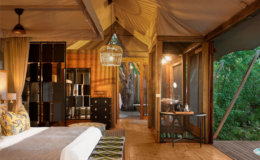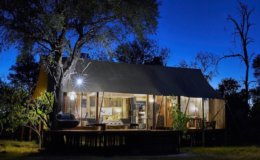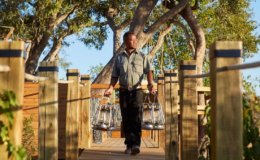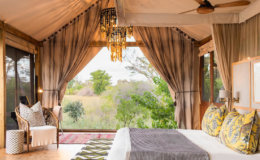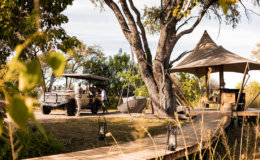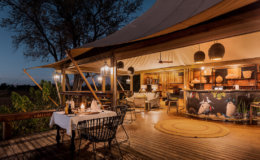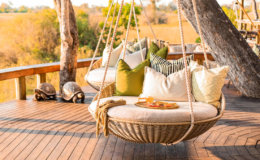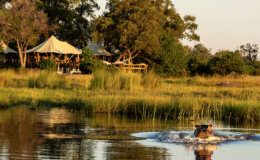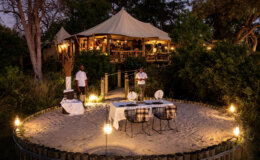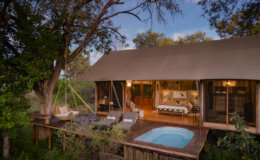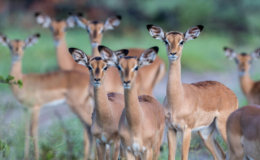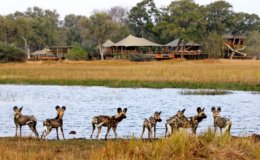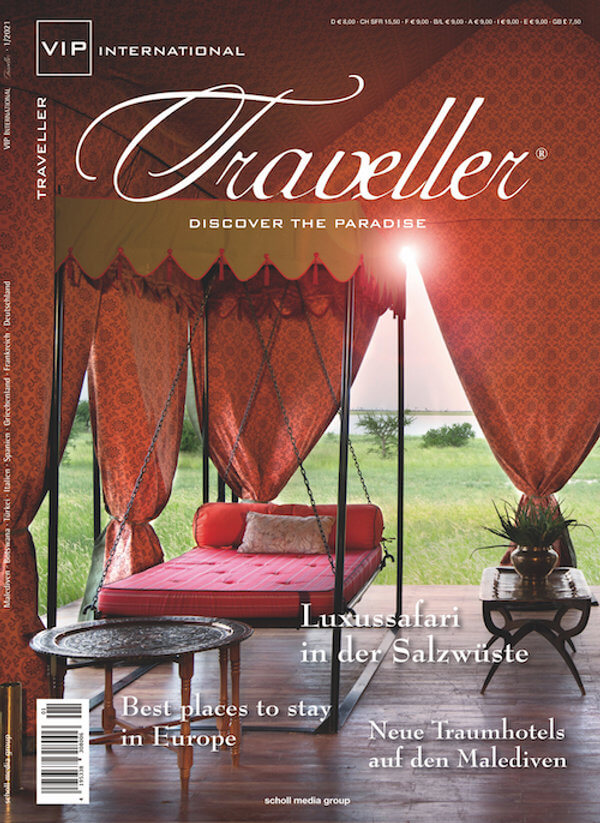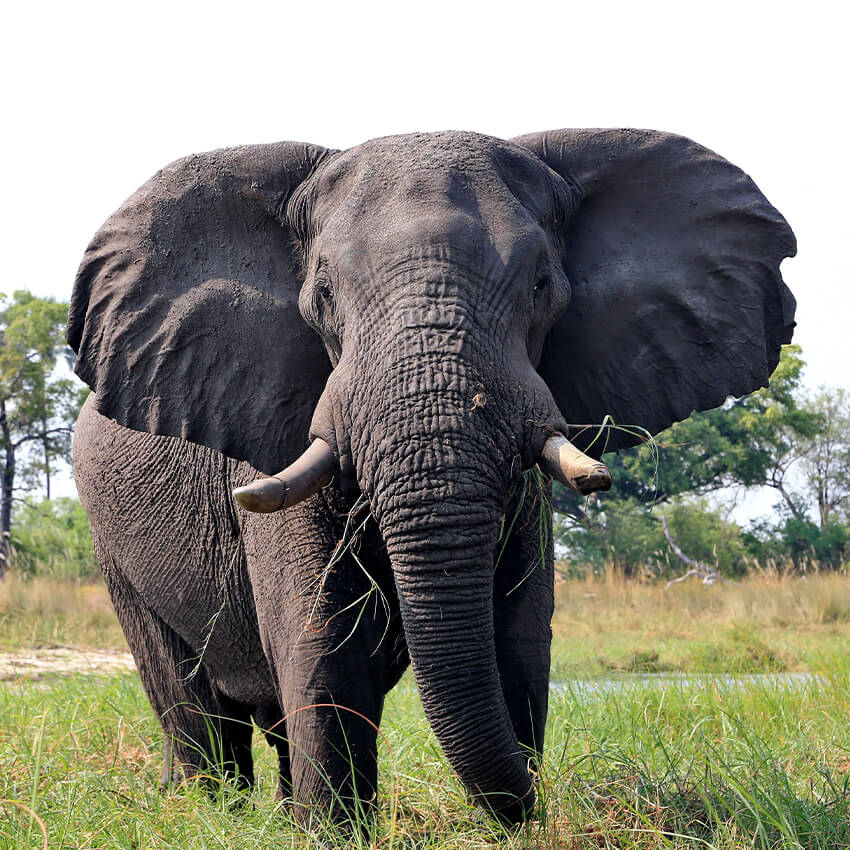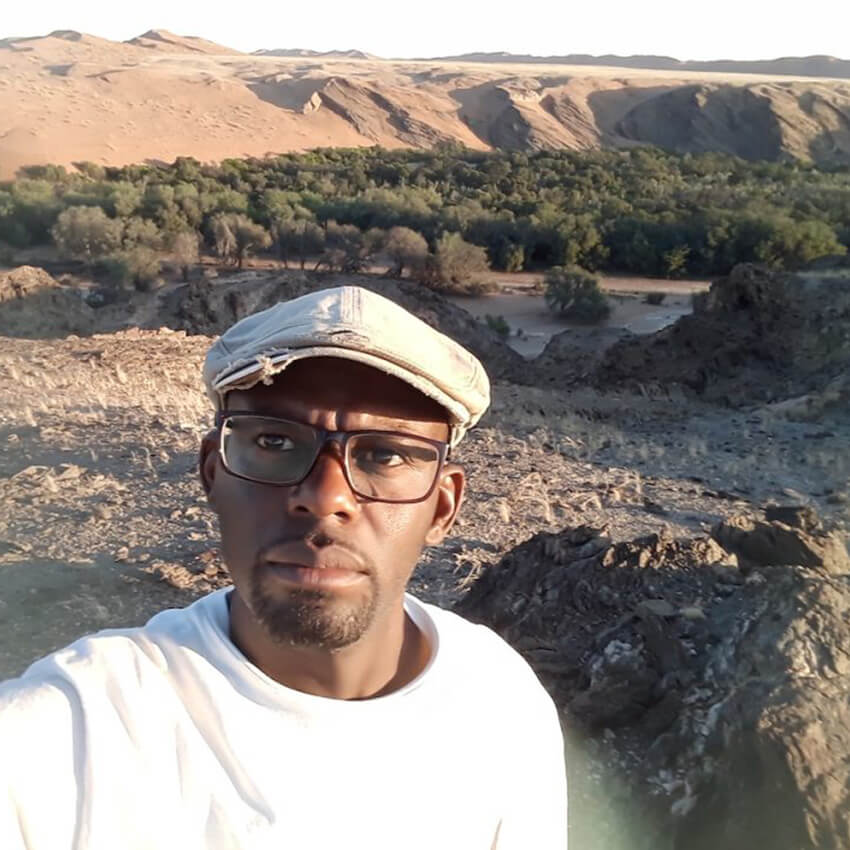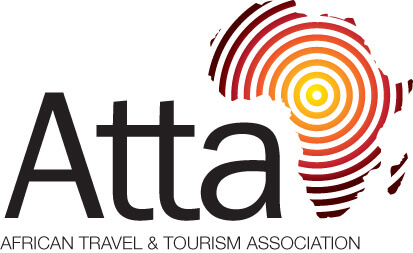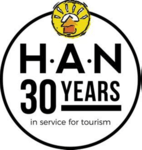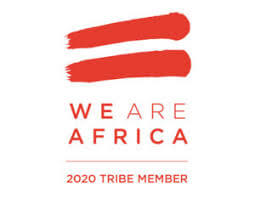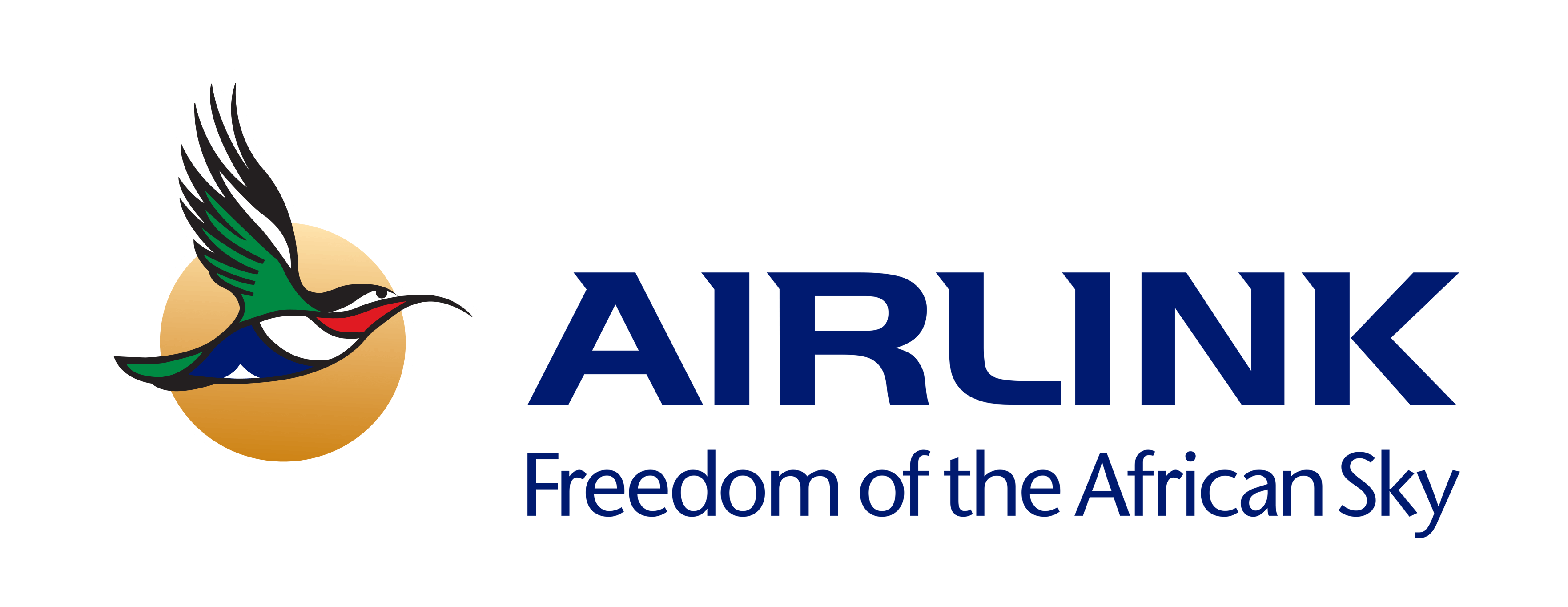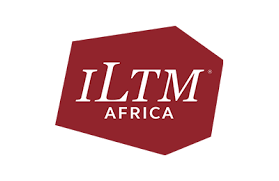Why You’ll Love Tuludi:
- Sophisticated, intimate and with every detail attended to, Tuludi offers an iconic Delta experience in the most refined of surroundings.
- Enjoy the space and serenity of an exclusive private reserve on the fringes of the Okavango Delta with only a handful of camps in over 200,000 hectares.
- No day will be the same at Tuludi, and with game drives, walking safaris (seasonal) and fantastic water-based game viewing on offer, you’ll discover the best of the Delta.
- Turn your safari into a real holiday and spend some time relaxing in camp. With a large swimming pool at the main area, a plunge pool at your room and a treehouse library, there are plenty of places for a spot of chill out time.
- Be part of conservation in action: the Khwai Private Reserve is a private concession from which proceeds go straight back into the eco-tourism initiatives of the area and to the surrounding communities.
We recommend booking Tuludi as part of a complete Natural Selection safari, but if you want to book it separately or just check availability, click here to select dates and book.
Interested in learning more about the prices? View Rates

